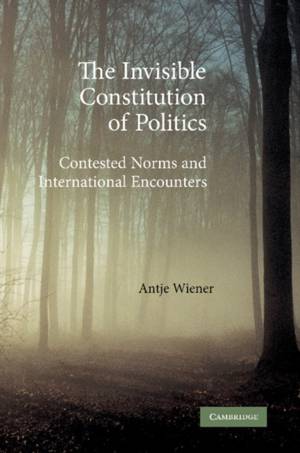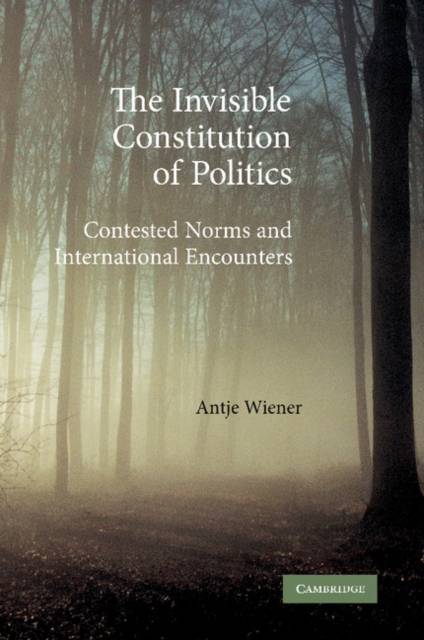
- Afhalen na 1 uur in een winkel met voorraad
- Gratis thuislevering in België vanaf € 30
- Ruim aanbod met 7 miljoen producten
- Afhalen na 1 uur in een winkel met voorraad
- Gratis thuislevering in België vanaf € 30
- Ruim aanbod met 7 miljoen producten
Zoeken
The Invisible Constitution of Politics
Contested Norms and International Encounters
Antje Wiener
Paperback | Engels
€ 60,95
+ 121 punten
Uitvoering
Omschrijving
As social practices now frequently extend beyond national boundaries, experiences and expectations about fair and legitimate politics have become increasingly fragmented. Our ability to understand and interpret others and to tolerate difference, rather than overcome diversity, is therefore at risk. This book focuses on the contested meanings of norms in a world of increasing international encounters. The author argues that cultural practices are less visible than organisational practices, but are constitutive for politics and need to be understood and empirically 'accounted' for. Comparing four elite groups in Europe, Antje Wiener shows how this invisible constitution of politics matters. By comparing individual interpretations of norms such as democracy and human rights, she shows how they can mean different things, even to frequently travelling elite groups.
Specificaties
Betrokkenen
- Auteur(s):
- Uitgeverij:
Inhoud
- Aantal bladzijden:
- 266
- Taal:
- Engels
Eigenschappen
- Productcode (EAN):
- 9781107404403
- Verschijningsdatum:
- 16/03/2012
- Uitvoering:
- Paperback
- Formaat:
- Trade paperback (VS)
- Afmetingen:
- 152 mm x 229 mm
- Gewicht:
- 358 g

Alleen bij Standaard Boekhandel
+ 121 punten op je klantenkaart van Standaard Boekhandel
Beoordelingen
We publiceren alleen reviews die voldoen aan de voorwaarden voor reviews. Bekijk onze voorwaarden voor reviews.











